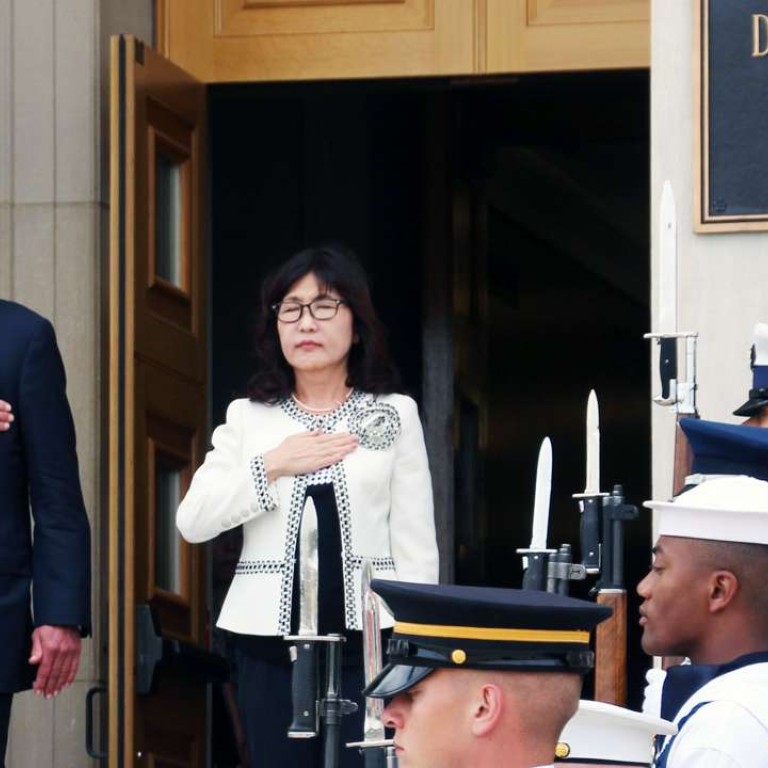
Japan’s participation in South China Sea patrols an unnecessary complication
Disputes should be solved by negotiations between the parties involved
Japan has no territorial claims in the South China Sea, yet it has vowed to join the United States and other countries in joint naval patrols of the contested waters. The decision, announced last week by new Defence Minister Tomomi Inada during a visit to Washington, came as regional tensions were easing after a recent agreement between China and the Association of South East Asian Nations to quickly conclude a code of conduct. Disputes are best settled through negotiations and provocative actions are guaranteed to poison the atmosphere for rational discussion. The unwelcome involvement of outside participants only muddies the process.
Japan has been put in a bind by the Philippines’ apparent refusal to take part. The arrangement to participate was announced by Tokyo on September 6 in conjunction with a deal to give Manila two large patrol vessels and lease it five surveillance planes. But a week later, Philippine President Rodrigo Duterte told troops that they would no longer conduct joint patrols with the US and other nations on the grounds that such action risked triggering conflicts.
Manila is one of the four Asian governments with South China Sea claims; Duterte’s predecessor, Benigno Aquino, took his country’s maritime dispute with China to a UN tribunal at The Hague and in July it ruled in favour of Manila. Duterte has opted for a pragmatic approach, siding with Chinese efforts for a negotiated settlement. While the US and Japan have long been the Philippines’ staunchest allies, the new leader has spoken of the need to mend ties with China and suggested improved trade and investment links.
Duterte has to be realistic. While his pronouncements have yet to be made policy and his country’s long-standing defence agreement with the US remains intact, he knows that the best way to settle the territorial dispute is through talks. That has caused confusion for Japan, but the hawkish Inada has already said Tokyo will go ahead with the patrols. Washington last year began sending warships and planes near areas where Beijing was building on reclaimed islands to conduct so-called “freedom of navigation” operations to protect the US$5 trillion in trade and energy resources that annually pass through the region. But in this case, freedom of navigation is more an excuse to take action against countries perceived to have excessive maritime claims. Japan’s participation in such a venture, when it is already locked in a dispute with China in the East China Sea, only complicates chances of a resolution.

